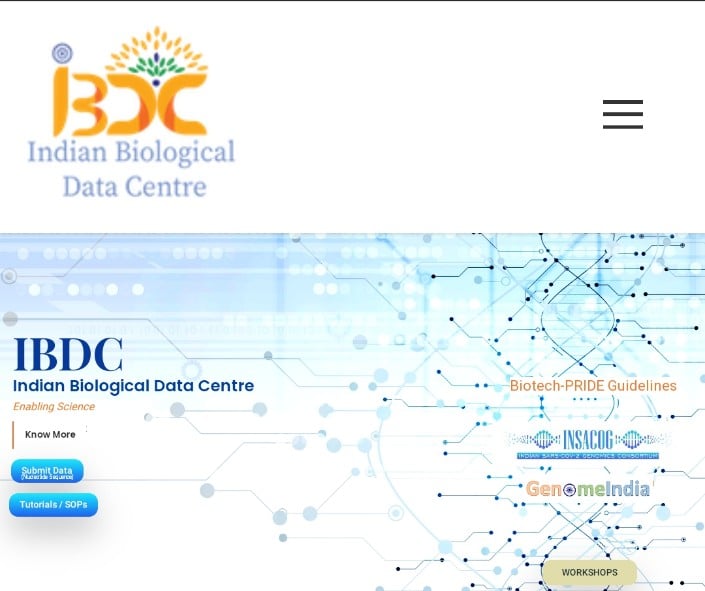This centre has been established at the Regional centre of Biotechnology at Faridabad supported by the Department of Biotechnology and a data disaster recovery site at ‘National Informatics Centre’, Bhubaneswar.
It has a data storage capacity of about 4 petabytes, and houses the High Performance Computing facility, ‘Brahm’.This facility will incentivise advanced computational research for Indian researchers. It has started accepting user requests at support@ibdc.rcb.res.in

The IBDC has started data collection from over 50 research labs in India, it has collected data of 200 billion bases from ‘Indian Nucleotide Data Archive‘ . The IBDC has a centralised dashboard which provides customised data submission, data analysis and access with real time SARS-COV-2 variant monitoring across India.
Benefits of this Centre for India
The IBDC is mainly committed to the spirit of data sharing as per FAIR principles (Findable, Accessible, Interoperable and Reusable). It has been developed in a fashion where different functionalities will deal with different kinds of life science data.
The users can learn how to access and upload data using the video tutorials available on the website of IBDC. This is another breakthrough achievement of India in the field of life sciences which has paved the way for future research and studies in this arena. High speed computational facilities were not available in India from a long time, making a centralised point for the collection and use of data is a welcome step which will ensure its efficient and planned use.
The genomic data research holds huge potential to improve healthcare facilities like diagnosis of a disease , it’s optimized treatment or its prevention. In our country gene based studies have been very limited due to lack of infrastructure and presence of social stigma in the society. A direct genotype – phenotype relationship has not been studied in the people of India.

A well designed genomic study of the people of India will enable the scientists to identify genetic markers associated with different health issues and craft a specific genetic treatment for the same. Advanced algorithms and machine learning are required to draw correlations between different sets of data like the relationship of gene expression with demography, it’s occurrence, health markers, synergy with pathological and clinical data etc
The genetic testing in India has evolved in leaps and bounds and presently there exist DNA based tests that address multiple concerns in healthcare from molecular diagnosis to disease prevention. These techniques help to identify the efficacy of a drug for a particular disease and even identify the risk of genetic diseases in individuals. The genotype phenotype relationship has always been a hurdle for the scientists with Indian data which is expected to be resolved with the new researches and government funding and support.

Read more: Water Found In Asteroid Residue By HayaBusa 2 Revealing Amazing Signs Of The New Beginning Of Life











